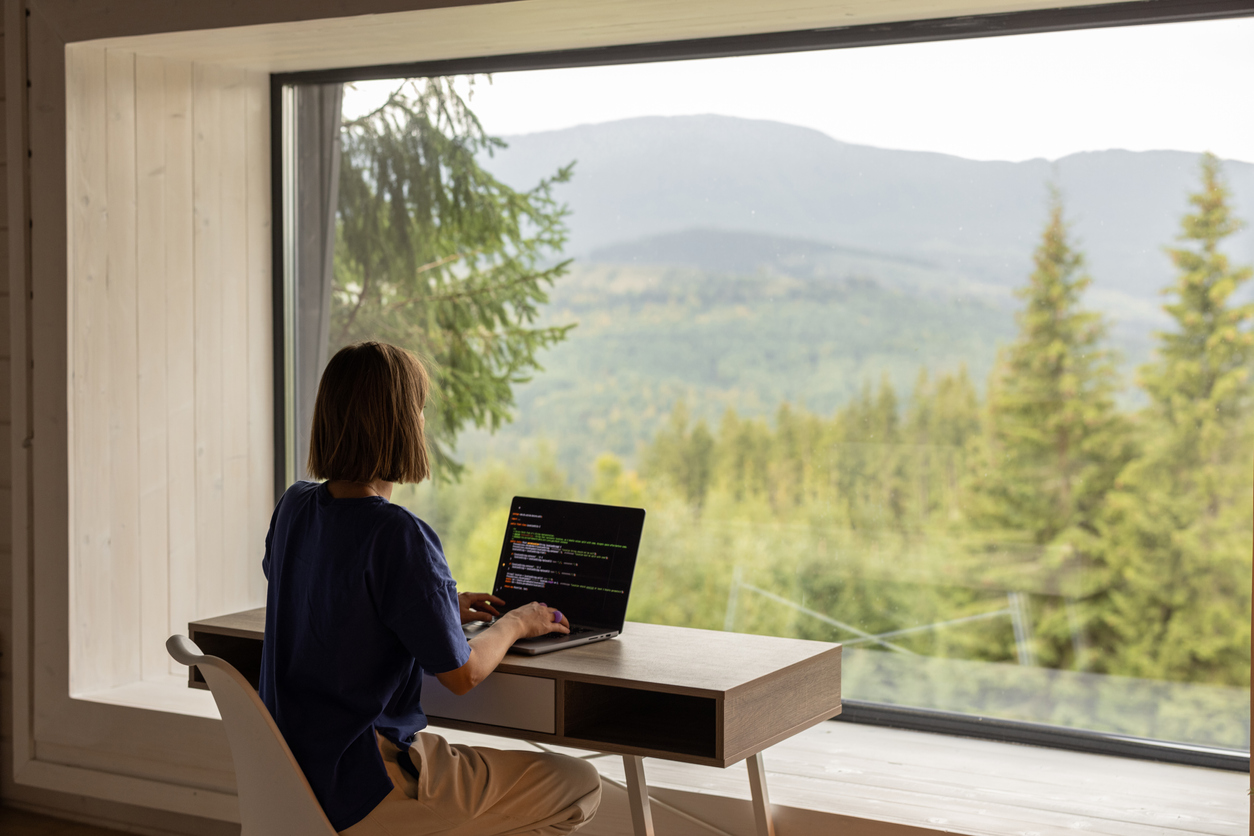We explore the remote work social experiment.
The truth about working from home is that it was a forced global experiment brought on by the pandemic and we are still experiencing the effects of COVID-19, from the implementation of work track applications, to how people collaborate either online or in the real world, changing the way that the world interacts and the effects of what remote works mean on a social and cultural level. The transition wasn't seamless for everyone. Many grappled with establishing boundaries between personal and professional lives. Work-life balance became a nuanced challenge, requiring discipline and self-awareness. The office's ambient social interactions were replaced by scheduled virtual meetings, potentially leading to feelings of isolation. Adapting to these shifts posed questions about future work dynamics and our innate need for community.
Employees have a different perspective concerning jobs
In the past, having a job - any kind of job - was perceived as a blessing. Nowadays, if a company doesn’t provide the opportunity to work from home or offer them a solid medical package with mental health days off, they would not even consider the position, even if it meant a stable income. However, this might not be true for people in lower socioeconomic brackets. However remote work seems to be reserved for upper classes who have access to higher education and the technology required for these jobs. The digital divide is more pronounced than ever, creating a gulf between those who can tap into the digital economy and those who can't. The rise of remote work has also heightened the importance of digital literacy. Many underprivileged individuals lack not only the tools but also the training to participate effectively in a remote workspace. This can perpetuate existing inequalities, as those with resources and knowledge continue to advance, leaving others behind.
Office culture has evolved
Gone are the days of ‘office wives’ and other peer-bonding practices. People are mostly strangers who work collaboratively together, with no chance to get to know each other on a personal level. This does not create a conducive environment for collaboration because people are not able to work efficiently if they do not understand each other. Differing expectations and zero comprehension of their co-workers’ personality, can sometimes sow discord amongst employees. One way to combat this is to bring the team together once a year at a team-building event. Such events foster genuine connections, allowing individuals to bridge the virtual gap. They provide a platform to understand teammates' strengths, quirks, and motivations, which can enhance collaboration and reduce potential misunderstandings in a digital workspace.
This is where tax gets tricky
Governments had to recalibrate their tax laws with the influx of remote workers working for international employers. While it might not be rocket science, it can be a hassle for employees to figure out their taxes. It could also mean an additional burden to the employer, depending on the rules for that country of residence and the arrangement between the employer and employees. Certain countries require employers to contribute to their employee’s retirement fund which are fees that are on top of an employee’s pay. Moreover, cross-border financial regulations can add layers of complexity. Compliance with varying tax codes, understanding double taxation agreements, and staying updated with changing international tax landscapes become crucial. This new dynamic not only challenges individual workers but also prompts companies to invest in global tax consultants and legal expertise to navigate these intricate waters.
Downsizing real estate
Remote working means less need for office space and property owners have had to change the way that they lease their commercial spaces. Either by dividing them into smaller spaces to accommodate more companies in one building, or creating a work-friendly environment with workstations. This is a far cry from how investors used to operate, letting out their entire space to corporations or companies for years at a time. Now, we’re looking at flexible tenancy agreements and much smaller offices.
The shift has also given rise to co-working spaces, which offer a blend of community, flexibility, and professional infrastructure. These spaces often come with amenities like high-speed internet, meeting rooms, and community events, catering to the needs of freelancers, startups, and remote teams. Property owners have recognized the value in offering month-to-month memberships or short-term leases, which can be more appealing to today's fluid workforce. As a result, traditional leasing models are being reimagined to fit the evolving demands of the modern business landscape.
Gender equality at an all-time high
One of the positive and unexpected benefits of remote work is the rise of women employees. Mothers suddenly have an opportunity to work from home which may contribute to the rising trend of women joining the workforce. Furthermore, people are more focused on results rather than race or gender, and let’s face it, when you’re online, it’s much easier to conceal the fact that you are female or non-White, effectively combating discrimination without having to fight it actively.
There continue to be studies being done regarding the effects of remote work culture but with the adaptability of human beings as a whole, it’s looking very positive for everyone. As technology advances and connectivity improves, many are finding remote work more sustainable. Additionally, the emphasis on work-life balance and mental well-being has made this model increasingly attractive, benefiting both employees and employers.














